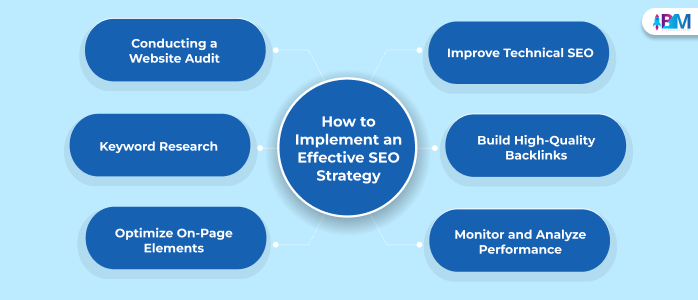You might have heard the term “SEO” flying around on the internet, and you know it’s important. But what is it, and why is everyone in the digital landscape so hyped about this?
SEO or search engine optimization is a powerful digital marketing strategy that attracts traffic or visitors by boosting a page’s visibility in different search engines.
SEO entails non-paid or organic search results. Getting high ranks in search engine result pages (SERPs) leads to more traffic that converts into more paying customers.
For instance, if you sell shoes, SEO will help your site become visible in search engines when people search for “buy shoes.”
Hence, in simple words, SEO is the practice of improving your website to increase its visibility when people search for:
- Services you provide.
- Products you sell.
- Information and expert knowledge you provide.
Why Is SEO Important?

Search engine optimization is vital for every business if you want to boost your business’ sales and establish yourself as an authority in the competitive digital landscape. Hence, SEO increases your visibility in search engines. However, SEO does more than that.
Websites that rank high in SERPS are regarded as the most credible and of the highest quality. Hence, the results shown on the first page are the most credible and relevant ones, which boosts a company’s reputation as an authority.
SEO further helps to attract the target audience throughout their buyer journey.
By using relevant and targeted keywords, you will attract your customers to your specific services or products. Businesses should create a list of targeted keywords that are performing well and create high-quality content around them. This will allow users to find the exact information they are looking for.
Interestingly, SEO and content go hand in hand. A website will perform well in search engines by creating informative, high-quality content optimized with the targeted keywords. Moreover, adding these keywords in meta and headings will boost your chances of ranking.
SEO is a lucrative way of driving website traffic compared to paid forms of advertisement. Thus, paid advertisement requires a significant budget, while SEO is depicted as an ongoing process and is considered much more affordable in the long run.
How Do Search Engines Work?
Search engines help users find information they need on the internet. They use these key components:
- Search Index: a digital library holding information about web pages.
- Search Algorithms: a step-by-step process to find specific data based on search queries that match and rank results from the index.
Search Engines Work In These Three Phases:
- Crawling: Web spiders or crawlers (bots) browse the internet, following links from one web page to the other. They find updated and new content across billions of web pages.
- Indexing: After a page is crawled, the content is assessed and stored in the index of search engines. This index contains a large database of data about all the pages discovered by the search engines.
- Ranking: When a user searches for phrases in search engines, they find the relevant searches from their index and rank them based on a few factors. These factors include authority and quality of content, metrics of user experience, and the relevance of the page in terms of the search query.
Key Components Of SEO
Search engine optimization entails many components, each playing a significant role in boosting your website’s visibility. These are:
(i) Keyword Research
To rank well in search engines, you need to create content that your target audience is looking for. Unless you do so, your audience will not be able to locate your web page on SERPs. This will result in your business not getting any traffic.
However, stick to topics relevant to your niche. Otherwise, you will not attract the right audience. You can use tools like SEMrush, Ahrefs, and Google Keyword Planner to find and analyze the right keywords for your topics.
(ii) On-Page SEO
On-page SEO entails optimizing each web page to rank high and earn more organic traffic. Some of the key elements of on-page SEO are:
- Title Tags: The main heading of a web page must include the targeted, relevant keywords.
- Meta Descriptions: these are brief summaries of your page’s content and must be keyword-rich and compelling.
- Header Tags (H1, H2, H3): These header tags provide a logical structure to your content.
- Content Optimization: You must include well-researched, informative, and high-quality content that includes the relevant keywords.
(iii) Off-Page SEO
Off-page SEO involves the SEO efforts behind the scenes in your webpage. Key elements of off-page SEO include:
- Backlinks: Getting high-quality backlinks from credible and authoritative websites in your industry is vital to showcase the high quality and credibility of your content.
- Social Signals: Your SEO also entails using social media engagement to influence your site’s credibility and visibility.
(iv) Technical SEO
Technical SEO looks after the technical aspects of your site and ensures your content is smoothly crawled and indexed by search engines. Elements of technical SEO are:
- Site Speed: Users prefer fast page loading speeds and often leave pages with slow loading speeds. This leads to high bounce rates. Hence, fast-loading pages are vital to promoting a positive user experience and ranking high in search engines.
- Mobile-Friendliness: With the world conducting most of their searches on mobile devices, your website should be mobile-friendly with optimized images, appropriate screen fittings, and others.
- XML Sitemaps: An XML sitemap aids search engines in finding and indexing your web pages easily and effectively.
How To Implement An Effective SEO Strategy

Implementing an effective SEO strategy includes several significant steps. These are:
(i) Conducting A Website Audit
Begin your SEO strategy by conducting a detailed website audit to find out areas that require modifications and improvements.
You can use tools like Google Search Console, Google Analytics, and other SEO tools to assess your website’s performance, find technical problems, and monitor key metrics.
(ii) Keyword Research
As mentioned above, finding relevant and targeted keywords based on what your users are looking for is important for your SEO efforts.
Moreover, finding the right keywords provides a direction on the content that needs to be created and existing content that requires optimization.
(iii) Optimize On-Page Elements
You must ensure all your key elements, like titles, meta, and headers, are optimized with the relevant keywords.
Then, you need to focus on creating high-quality and well-researched content that meets the needs of your users. This will add value to your audience’s needs and boost your credibility.
(iv) Improve Technical SEO
You must address any technical problems that can slow down your website. Hence, ensure your website is optimized with fast loading speed, easily crawable by search engines, and mobile-friendly.
Moreover, leverage tools like Google’s PageSpeed and other mobile-friendly tests to assess your technical elements and ensure they are optimized.
(v) Build High-Quality Backlinks
Links from external websites, called backlinks, are one of the most important ranking factors in search engines.
Hence, you must focus on acquiring high-quality links from credible and reputable businesses in your industry.
You can do this by building relations with webmasters, reaching out to authoritative websites, and promoting quality content.
(vi) Monitor And Analyze Performance
Your job doesn’t end after ensuring everything is perfect and optimized. You must then monitor and assess your pages’ performance. This allows you to mitigate any issue or instantly optimize old content.
Tools like Google Search Console and Google Analytics allow you to keep track of your SEO efforts by assessing key metrics. These key metrics include bounce rates, organic traffic, and rate of conversion.
Wrapping Up
SEO or Search Engine Optimization is integral to the business’s digital marketing approach. It assists the company in optimizing the search results to get more traffic to the company or the business website.
The greater objective of SEO is to allow the page to accomplish and grow your business goal. It will further assist in creating better relations with the end-users.
Furthermore, you can experience improved visibility and greater ranking, allowing the page to gain users’ belief and invite more people to the site. Remember, this ongoing process is vital for achieving long-term success in the digital landscape.
Read Also:
